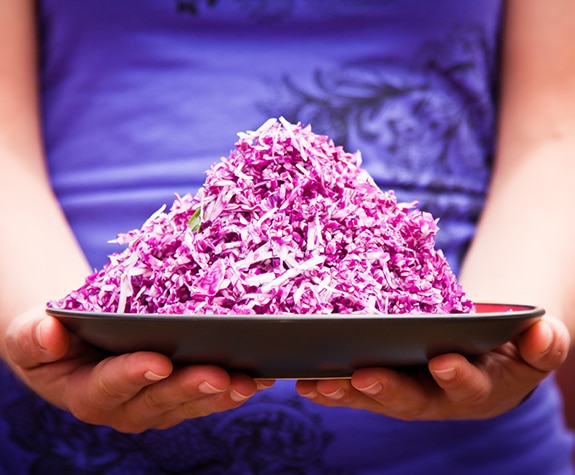70-80% of the Immune System Resides in the Gut.
Our immune system does the job of protecting us from the world of deadly microbial viruses and pathogens. It acts as our bodyguard, ready to shield us from sickness and infection. Researchers agree that a person’s microbiome slowly develops within the first three years of life. Still, you can do plenty, like eating well, getting exercise, and getting a good night’s sleep, which can alter your gut environment throughout your lifetime, and this post will share more on the hows and whys.
The Gut Microbiome Explained
Within our Gut, we house an ecosystem of bacteria, algae, protozoa, fungi, and viruses – collectively called the gut microbiota. The gut microbiome harbors more microorganisms than anywhere else in the body. These companions throughout life connect our physical and mental well-being by playing a role in digestion, immunity, metabolism, hormonal balance, mood, and brain function. They’re small but mighty, and we need them to be healthy, vibrant human beings. These powerful microbes reside within the Enteric Nervous System, part of the Central Nervous system that houses 200-600 million neurons. This system is unique to our GI Tract because it has a nervous system called the ENS for short. Because this ‘second brain’ in our belly houses the same neurons found in our brain, it’s intelligent, efficient, and amazingly complex. Ok, back to trying to keep it simple.
According to The National Institute of Health (NIH), “the term microbiota was first defined by Lederberg and McCray, who emphasized the importance of microorganisms inhabiting the human body in health and disease.” To maintain a healthy immune system, it’s essential to have a diversity of these living organisms within the microbiome. Why is this? Because microbes help break down food in the digestive tract, harness energy, and nutrients, and keep our immune system healthy. By maintaining a robust and diverse microbiome, we can reduce low-grade inflammation. Low levels of diversity in the microbiome are associated with increased stress and anxiety levels, according to a recent 2020 study in the Human Microbiome Journal. As we age, our microbial community becomes significantly altered compared to when we were younger. Implementing simple practices to encourage diversity is key to decreasing susceptibility to disease and general health declines. What kind of practices are best for helping to create microbial diversity? Keep reading.
Caring for Your Microbiota
The easiest and most powerful way to improve and care for your microbiome’s composition is through your diet. It’s essential to be aware that “healthy” won’t mean the same thing for every person. There’s not even a ‘healthy’ standard. It’s unique to each person. However, several guidelines regarding how foods affect and shape microbiota are well-established. First, eat your veggies, and a wide variety at that! Why? Because fiber is the primary food source of these companions of ours. In addition to a range of fibrous plant foods, fermented foods like sauerkraut, kefir, (unsweetened) yogurt, kimchi, miso, and tempeh are also an excellent way to increase beneficial bacteria traveling through your Gut. High fiber foods such as legumes, berries, cruciferous vegetables, and dark green veggies, which are all high in antioxidants, are essential too. Unfortunately, the typical American diet has very little fiber, so making this simple switch will drastically improve your health.
Other important ways to care for your Gut are doing simple things to take care of your body, like getting a good night’s sleep, staying hydrated, and moving your body through different forms of exercise.
The Microbe Disruptors
Stress can dramatically alter living conditions for microbes in the small and large intestines because it alters gut contractions, rates of transit from our large intestines, and blood flow, according to Dr. Emeran Mayer, MD, author of The Mind-Gut Connection. Studies from the National Institutes of Health (NIH) also suggest that “food additives such as emulsifiers may contribute to gut and metabolic disease development through alterations to the gut microbiota, intestinal mucus layer, increased bacterial translocation, and associated inflammatory response.”
Finding ways to manage our microbe disruptors such as these can be as simple as implementing a regular relaxation practice and paying attention to what’s in the food we choose to eat.
Simple Steps to Immunity Empowerment
As you can see, you can positively influence your gut microbiota by paying attention to what you feed your microbes – which is the perfect place to start. What and how we eat significantly impacts gut health, giving us an easy, enjoyable, and inexpensive way to modify it. The next time you sit down to eat, add a spoon or two of sauerkraut or kimchi to your meal – try it with eggs, salad, on your next burger of choice, or with your favorite delicious rice dish. Be adventurous! Get outside for a walk and plenty of Z’s (seven hours minimum). You have nothing to lose and a lot of empowering, immunity-building, energy-giving diverse bacteria to gain.



